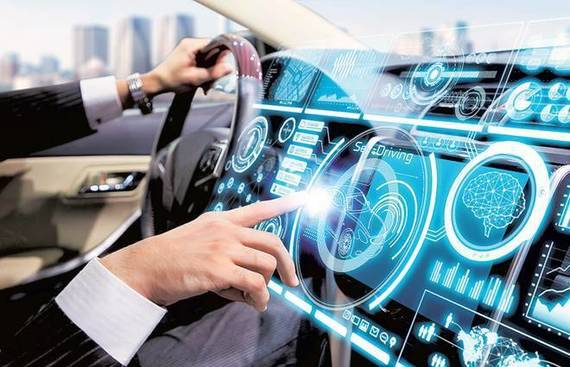Connected Cars: Will India embrace refined mobility?

The invasion to 5G is transforming the overall approach automobiles are no exception. For a long time now, the Indian automotive industry has been focusing only on specific aspects such as acquisition, fuel conservation, maintenance, engine power and more. However, technological advancement and innovation draw a new level of competitiveness among automotive industry players, tech-induced connected cars. Deloitte's Global Automotive Customer Research 2020 has revealed that India is one of the few countries ready to pay for advanced technologies. The survey also hints that two out of three Indians are ready to pay up to  50,000 for connected technologies. It is also estimated that by 2025 there would be 100 million connected cars. This indeed would significantly raise the collaboration of the insurance firms and the OEMs, says the survey.
50,000 for connected technologies. It is also estimated that by 2025 there would be 100 million connected cars. This indeed would significantly raise the collaboration of the insurance firms and the OEMs, says the survey.
Process & Features of Connected Cars
The vehicles that are capable of connecting with the internet are known as the connected car. At present, automobile companies use two kinds of systems in connected cars, namely tethered and embedded systems. The tethered system would be equipped with hardware that would connect to the driver's smartphone, and the embedded cars would be designed with a chipset and built-in antenna. Thus, a connected car could access data, update software, download files, and most importantly, these vehicles could connect with other devices and also enable wifi internet connection to the passengers. Furthermore, the connected car could be accessed through connected technology, and it is highly beneficial for EVs.
Connected cars are designed with a host of smart and expedient features. The features of connected car technology could enhance the overall driving and ownership experience and add a safety net with its advanced security features. The vehicle's security features are numerous such as
Internet access in Cars
The connected car could be connected to the internet through an embedded chipset or a SIM card. The vehicle could access the internet if there is continuous wireless network coverage. Connected cars could also facilitate onboard wifi connectivity, download the manufacturer's updates, and access other online applications and services.
Sets Boundaries with Geo-Fencing
These connected vehicles offer the most crucial security feature known as Geo-Fencing. This feature would create a geographical boundary on the map and signal the owner when the car is driven beyond the assigned boundary. The geo-fencing could be set through the smartphone app, and it would be extremely useful, especially if a young or a leaner is using the vehicle.
Enables Vehicle to Vehicle Communication
v-2-v connectivity technology enables connected vehicles to communicate with each other. It aids in sharing vital data such as traffic movement, speed limits, road conditions, and much more. V-2-V technology would be a critical part of autonomous vehicles that is perceived as the future of mobility.
Provides Remote Parking
Certain high-end connected cars even allow the user to park the vehicle remotely. This could be done via the smartphone app or the smart key fob, The user could get out of the car and shift the vehicle to park it in the desired spot. This feature could be highly beneficial while parking in a packed parking lot or when the user is in a hurry.
Entertainment for Passengers
A connected vehicle enables the passengers to connect to a host of pre-loaded entertainment services/apps. They could listen to music, internet radio or even watch videos while the car is not in motion. Apart from that, you can also connect your smartphone to the car's infotainment system through apps and remotely control the player.
Improved Security
Connected vehicles come designed with several critical security features that include real-time location sharing/tracking, emergency SOS calls in case of an accident, roadside assistance in case of vehicle breakdown and much more. Apart from the onboard safety equipment, these intelligent safety features come in handy during the critical scenario.
Connected cars in India
In India, connected car technology is still burgeoning, with just five percent penetration into infotainment systems. However, the country's connected car market is likely to witness a growth of over 20 percent in the next few years. The connected cars have brought in the massive potential for automotive players to utilise the new source of value across a few touchpoints such as service providers, infrastructure, drivers or passengers, homes, dealers or OEMs and other vehicles. This is also expected to escalate the revenues, cutting down costs and decreasing the working capital across the value chain. Additionally, the luxury and premium car OEMs in India are open to provide connected services across various other models as well, yet the services could be provided by OEMs alone as they manufacture for the mass market. However, the availability of the connected services could approximately range from 20 to 70 percent for the non-luxury, non-premium OEMs. Yet, India being an extremely value-conscious market, several OEMs facilitates free connected services for close to three years.
These connected services are also giving a push towards a significant shift in value pools across the value chain. Although this shift indeed would attract new entrants to target specific and, in many cases, narrower parts of the automotive value chain. These new entrants are enabled by advances in areas such as mobile, cloud, analytics, and computing.
Connected services are in the initial trials, and thus the time is adopted for OEMs to ramp up their abilities. These capacities would need experience and time to yield fruit. Hence, OEMs must speed up their connected car as well as services journey. Slowly, mobility is picking pace, and this is the right time to bring in the transition in the automotive industry.
